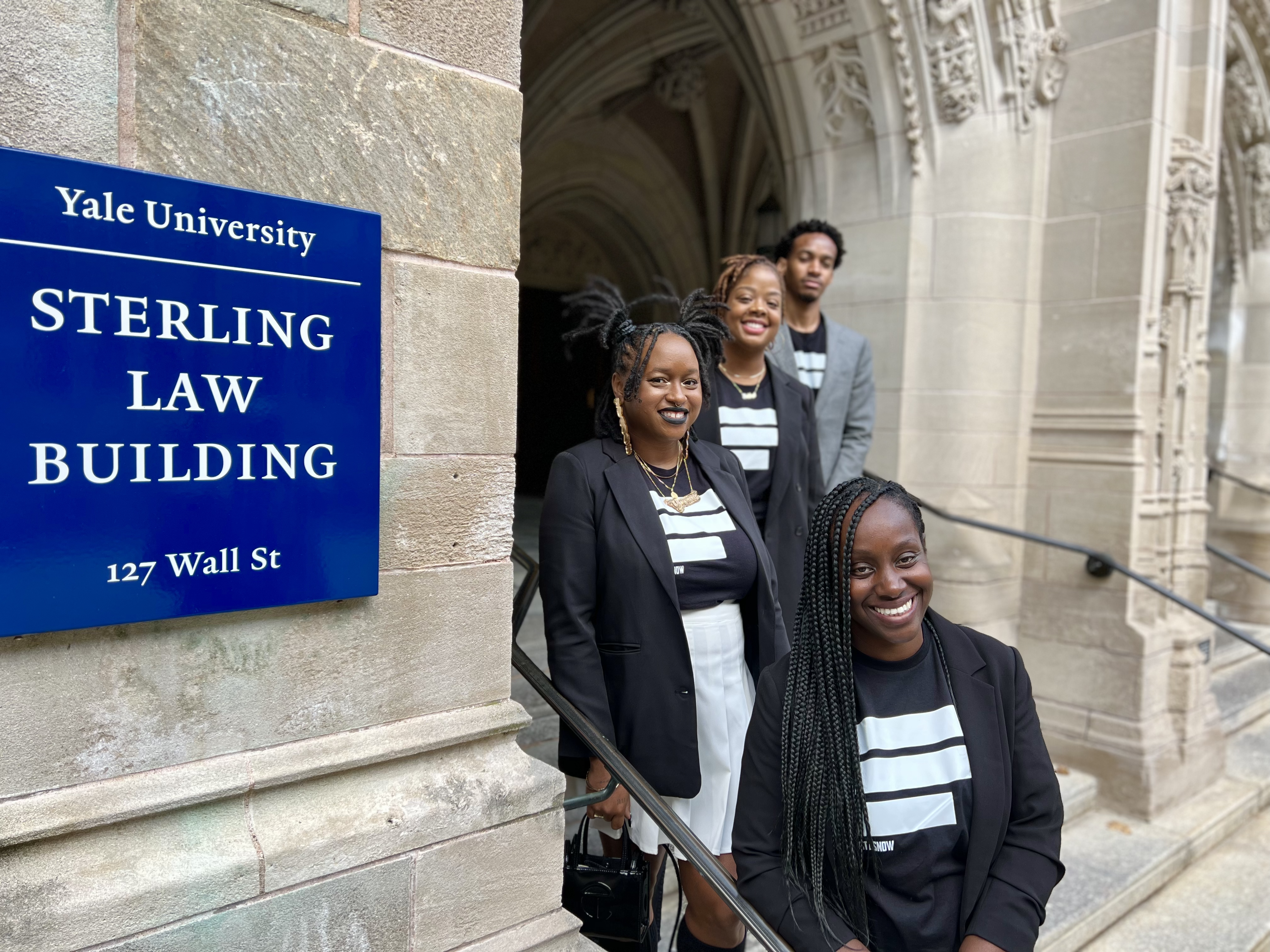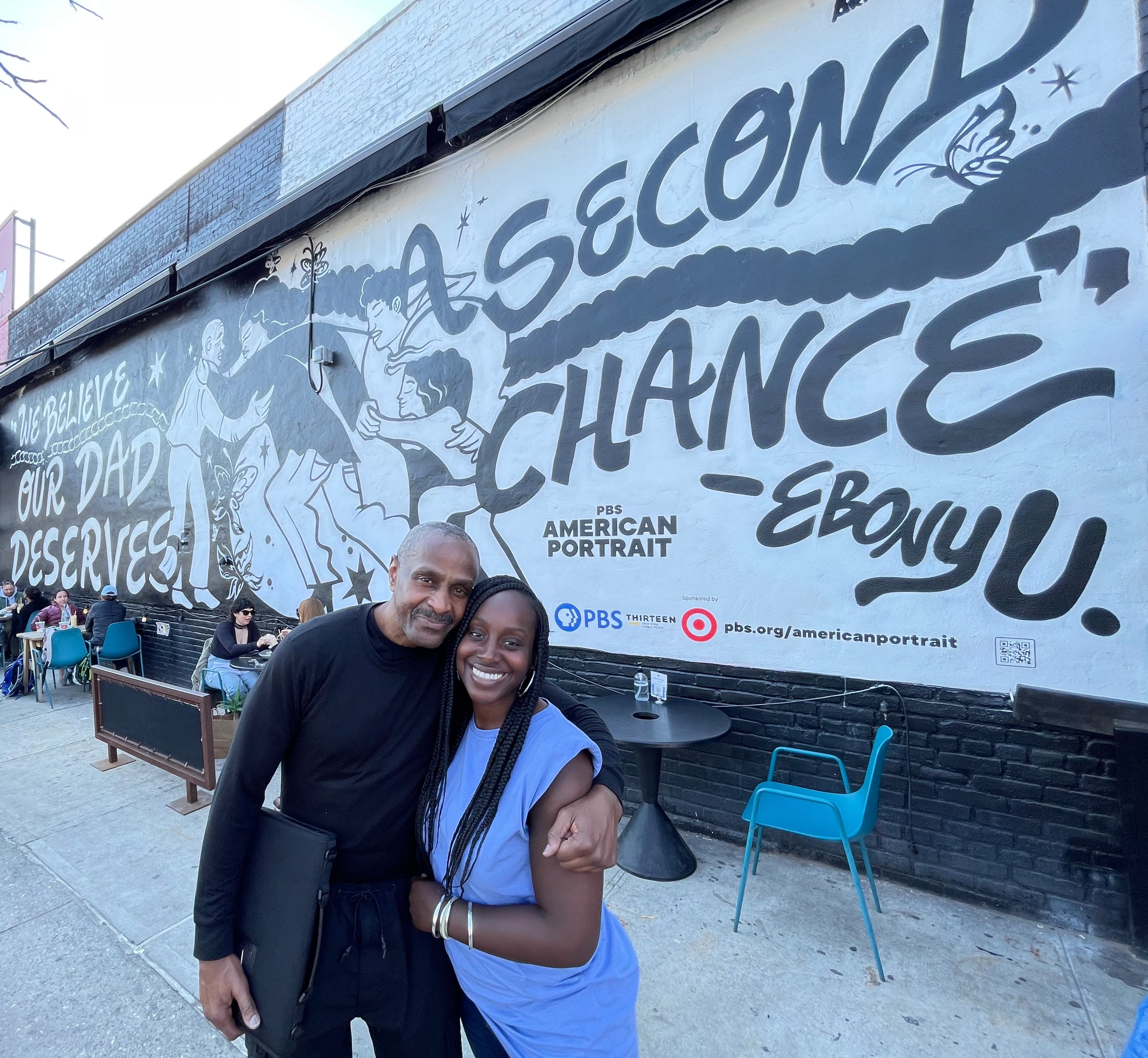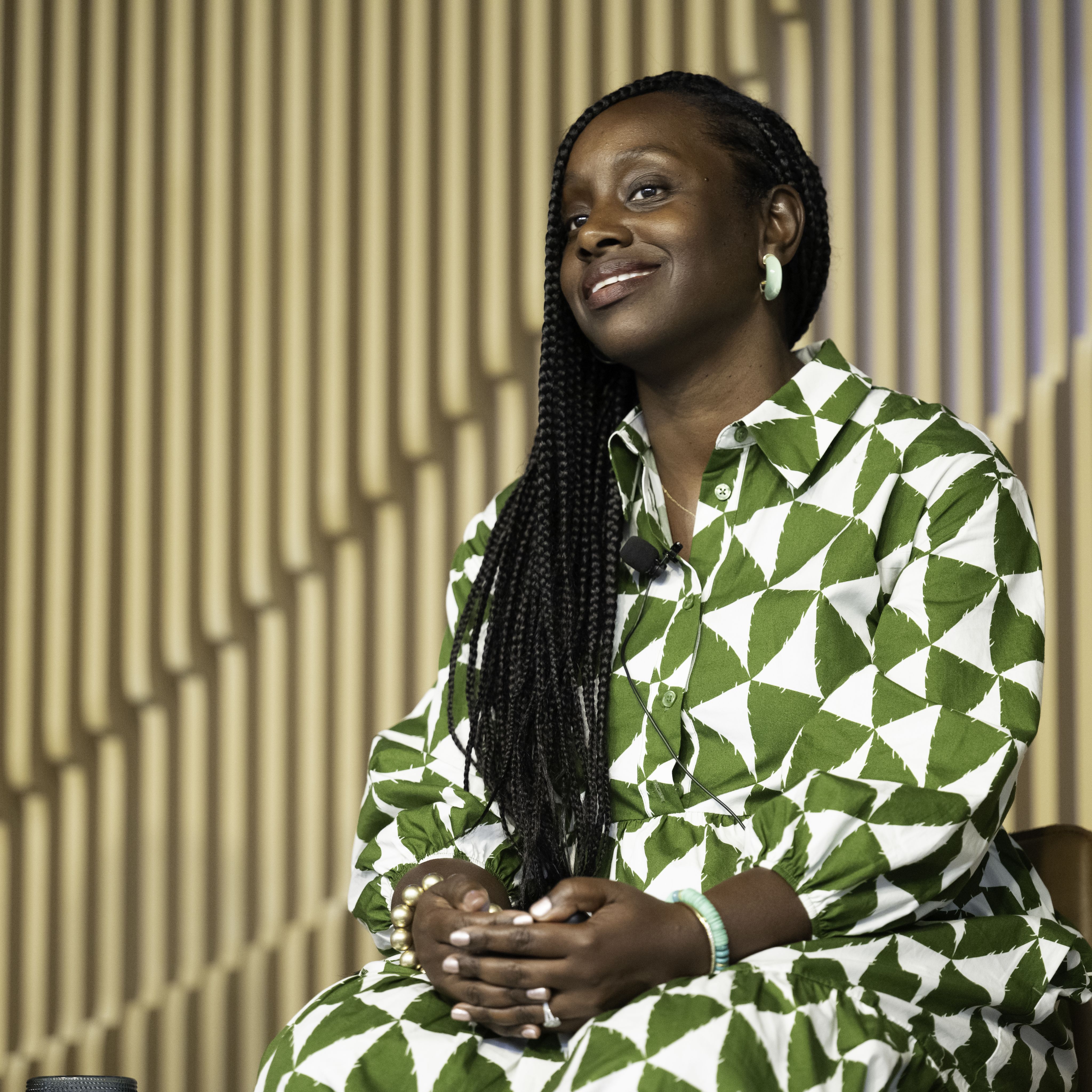Big Ideas On Campus
With help from the Ascend Fellowship Impact Fund, Ebony Underwood is unlocking intellectual capital in higher education to better serve children impacted by adult incarceration.

Big Ideas On Campus
With help from the Ascend Fellowship Impact Fund, Ebony Underwood is unlocking intellectual capital in higher education to better serve children impacted by parental incarceration.

On a brisk fall afternoon, 2021 Ascend Fellow Ebony Underwood shared what it was like to grow up with her father in prison during a conversation with roughly two dozen attendees at Yale Law School.
As founder and CEO of WE GOT US NOW, Ebony has been working for the past five years to change how the legal system, and society, treats children with incarcerated parents by showing the numerous and nuanced ways mass incarceration impacts families.
“Our mission is to ensure that daughters and sons with parents behind bars will not have to experience the perpetual harms that have been caused to us,” Ebony says in a New Haven, Connecticut hotel hours after the Yale event. “It's not a criminal justice issue. It's a child well-being issue.”
The conversation at Yale is part of a larger educational series that Ebony and her team of actionists are embarking on thanks to her Ascend Fellowship Impact Fund award. Leveraging her award, as well as funding from the NBA Foundation, Ebony and her team are engaging college campuses in conversations about the well-being of children and young adults impacted by parental incarceration. To date, she has visited Yale, Berkeley Law, and the University of Miami, with more campuses to come.
With these conversations, Ebony is ensuring her intellectual capital, informed by personal experience and subject matter expertise, extends to spaces beyond criminal justice. To better serve children and young adults impacted by parental incarceration, Ebony is asking us to look at the problem as one of child well-being. In that context, WE GOT US NOW is looking to educate other sectors, like public health and higher education, that could ultimately help the social and economic mobility of this community.
“The average person does not think of an incarcerated person beyond the crime committed; they have no idea that most people inside jails and prisons have children who are impacted by the effects of having a parent behind bars,” Ebony says.

Ebony with her father, William Underwood
Ebony with her father, William Underwood
The educational series grew out of 10 Million Children Inspired, a report WE GOT US NOW produced that highlights the policies associated with 50 years of mass incarceration and the collateral damages it has caused. According to the Prison Policy Initiative, roughly half of the nearly 2 million people currently in prisons are parents to at least one minor child. The report also highlights key policy wins WE GOT US NOW advocated for, including six pieces of legislation at the local, state, and federal level aimed at supporting children and families impacted by mass incarceration, including securing $3.5 million in federal funding to develop community-based programs that will keep families connected.
Ebony and the WE GOT US NOW actionists are using this educational series to educate the future teachers, doctors, attorneys, and judges of the world about the importance and scope of their work. Yvonne Hendricks, an actionist who also provides counseling to children, grew up in Connecticut and was one of three actionists who joined Ebony for the discussion at Yale. She explained how children of incarcerated parents deal with many of the same emotional issues as those of divorced parents.
“The trauma is exactly the same,” Hendricks says. “There is that sense of isolation and the fact that people don’t understand what we’re going through.”
One of WE GOT US NOW’s priorities is to push for policies that improve communication among family members while parents are incarcerated. This includes ensuring incarcerated parents are located as close as possible to their families and that children are allowed in-person visits.

Ebony Underwood at Aspen VisionXChange. Photo by Dan Bayer
Ebony Underwood at Aspen VisionXChange. Photo by Dan Bayer
Gaylord Salters, who attended the Yale event, said that contact is also crucial for the parents while they’re in prison. Salters served 22 years of a 50-year prison sentence for a shooting he maintains he didn’t commit. He said his connection with his daughters helped him get through periods when he doubted he’d be released.
“It was looking dark, like I didn’t know if I was even going to make it out alive,” he says.
One of his daughters even helped him start a publishing company, Go Get It, and he wrote three novels while in prison. Salters established the company so he could pass something along to his daughters in case he never got out of jail. He said it also deepened his relationship with them and allowed him to be more than a father in name only.
“That stuff is just crucial, being able to engage your children, having a common bond outside of family, outside of the relationship,” he said.
Salters, who continues to fight for exoneration, said other policy changes that can help parents stay connected include reasonably priced phone calls and more transportation for families who rely on public transit.
Ebony has seen the impact of her work with her own father’s release from prison in 2021, a story that Sen. Cory Booker, D-NJ, has invoked as an inspiration for the Second Look Act, which aims to give a “second look” to those who have been incarcerated for 10 years or more.
But as she looks to what’s next for WE GOT US NOW, she’s excited to use the educational series as a launching pad to her bigger goal of building a sustainable organization for as long as jails and prisons exist.
“We've successfully created a strengths-based model with our programming and it’s time to cast a wider net in our reach.” Ebony says. “I see WE GOT US NOW as a global institution, a hub, where systems come to learn from our programmatic frameworks and research about best practices in advancing the social and economic well-being of children with incarcerated parents, from a community who not only understands it, but lived it.”
